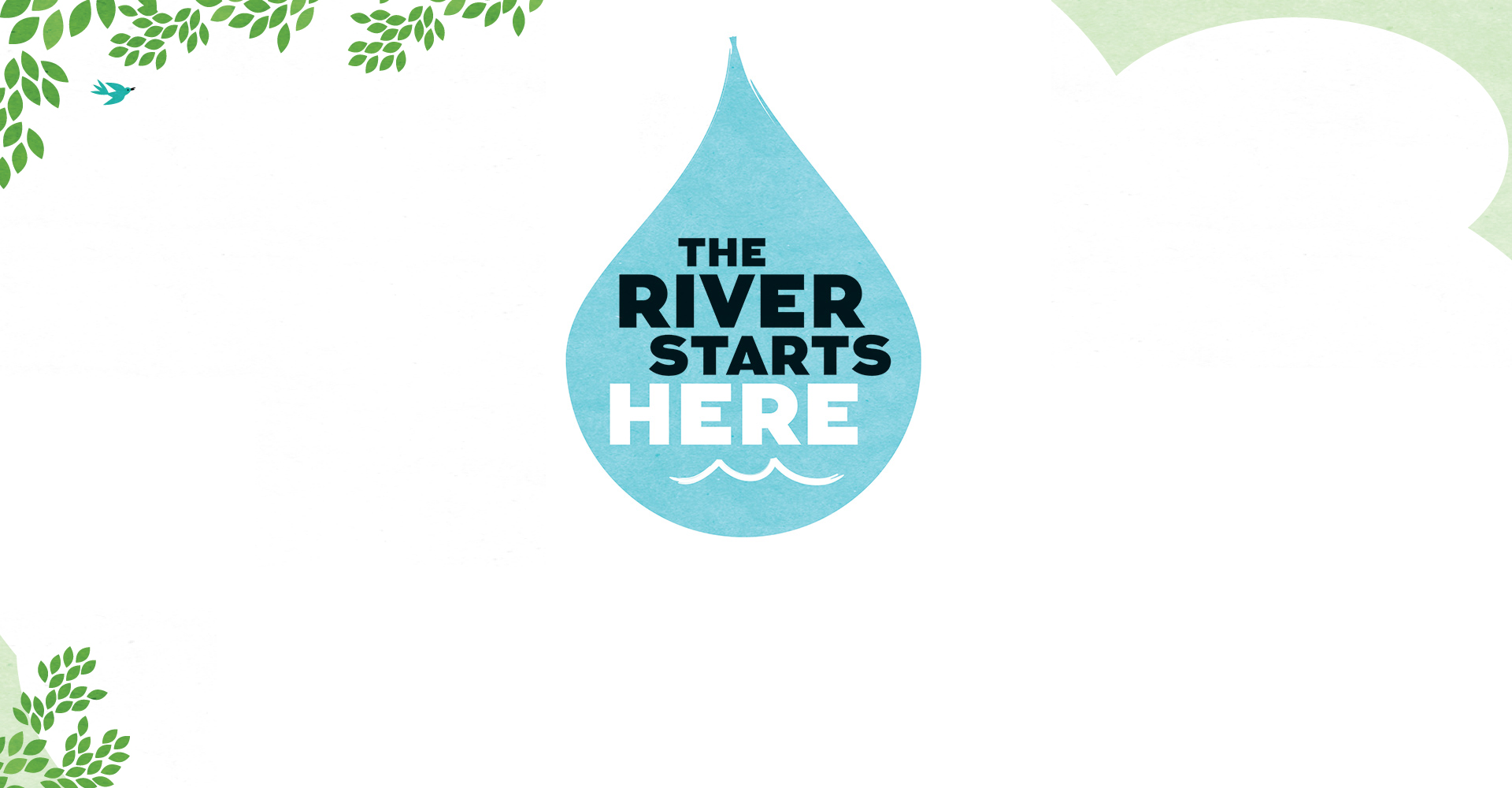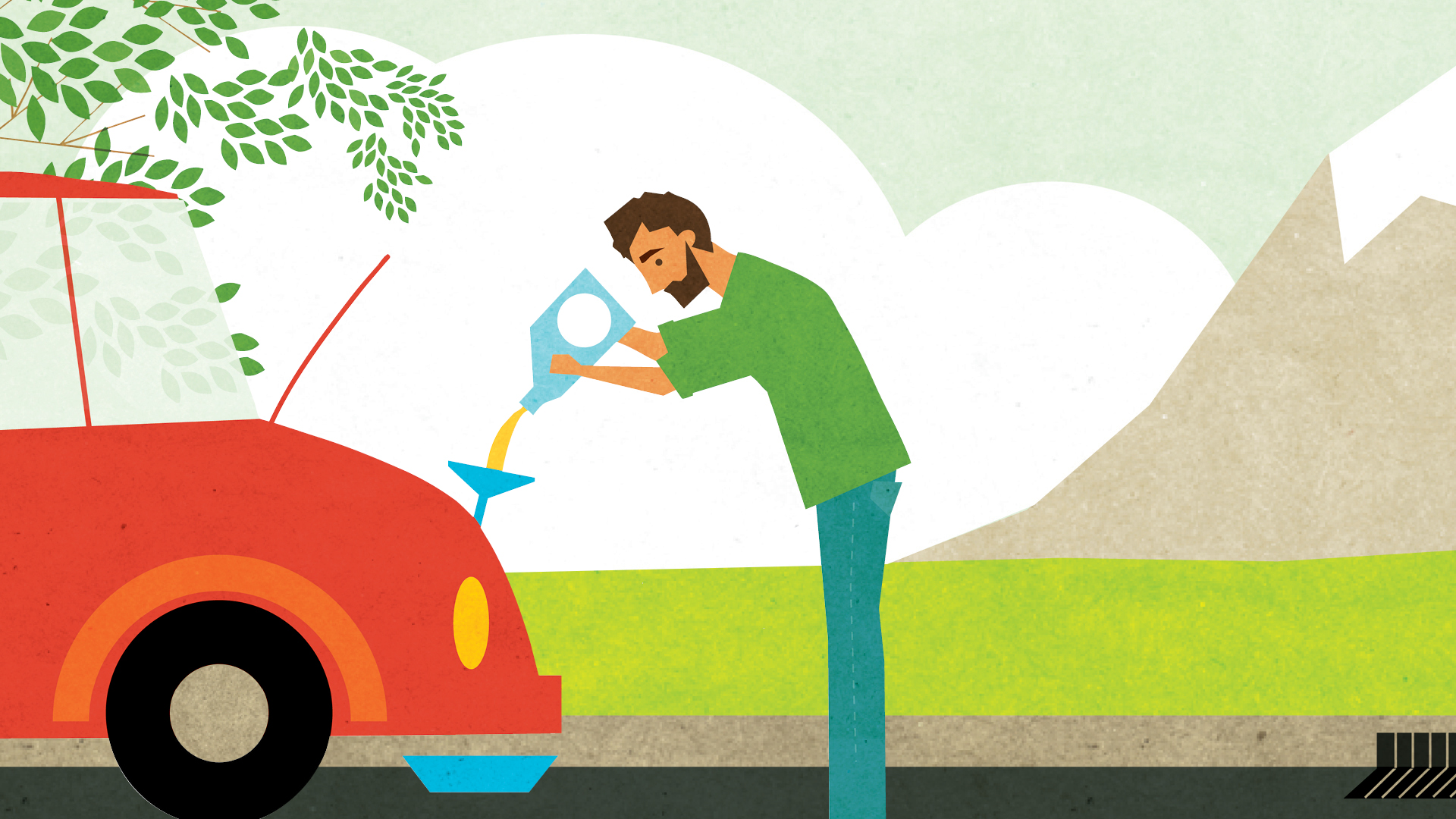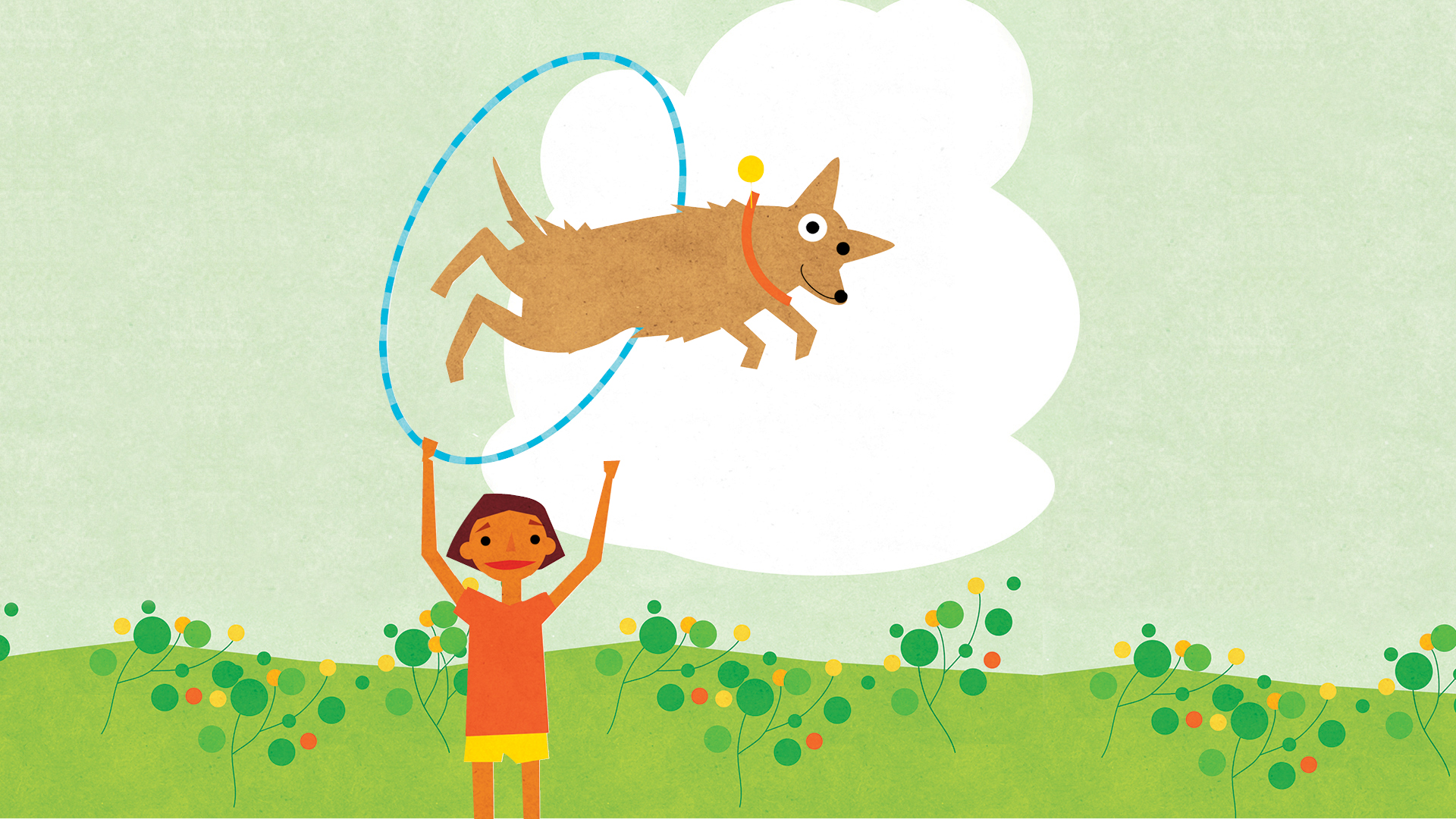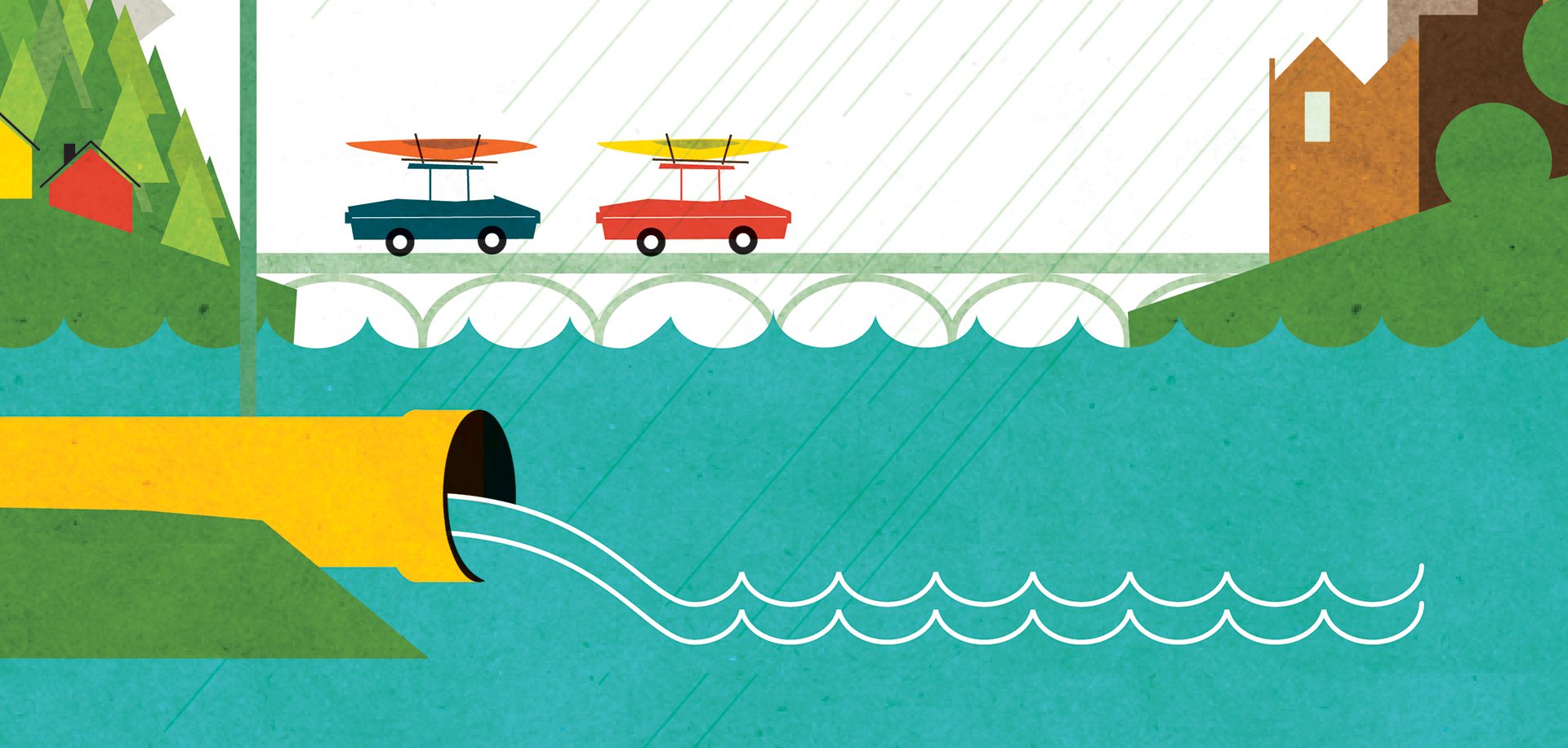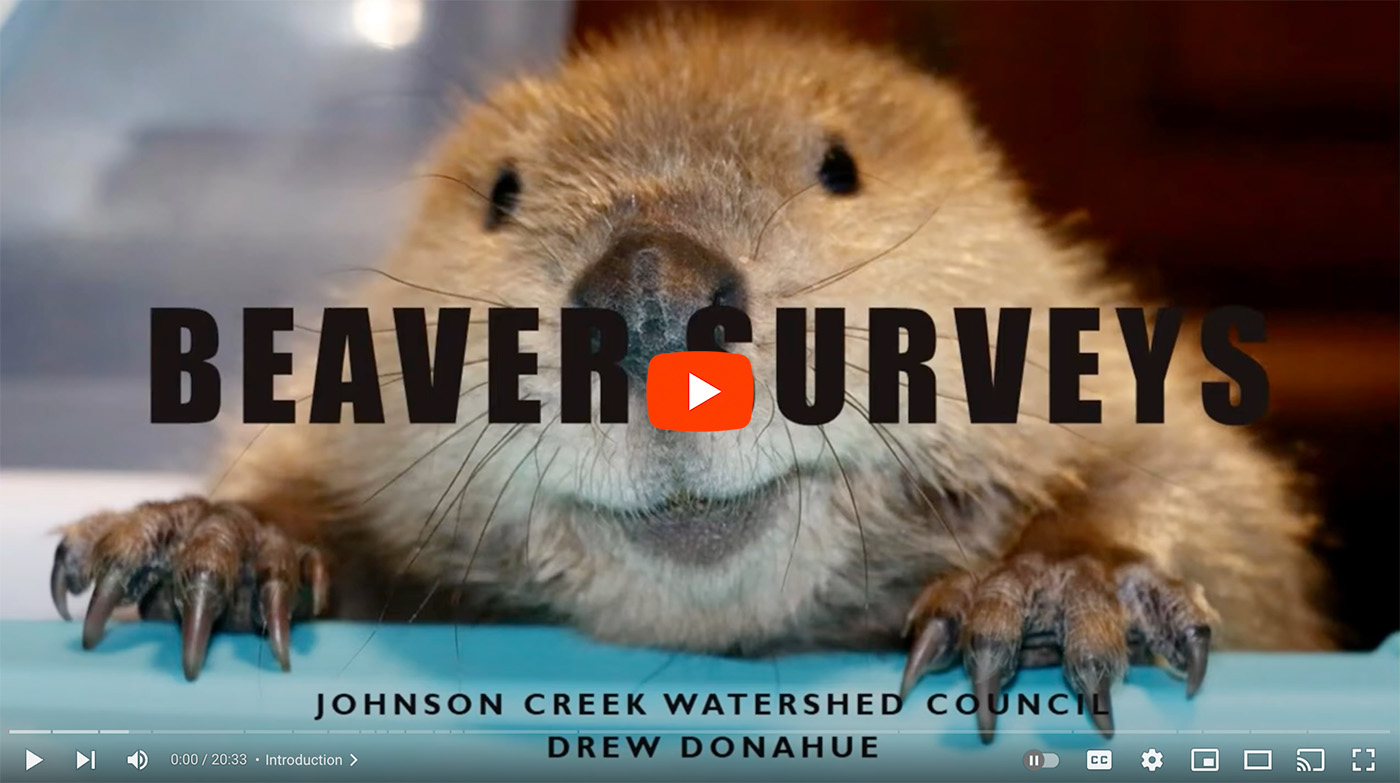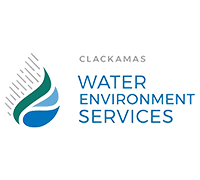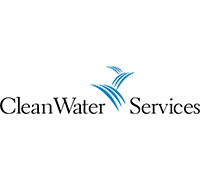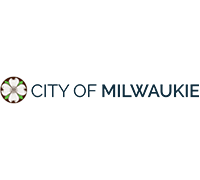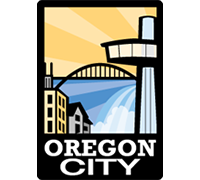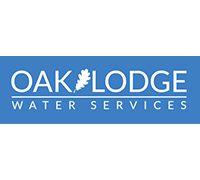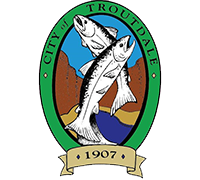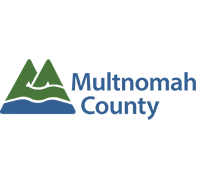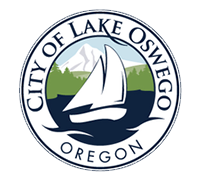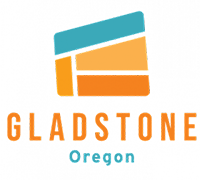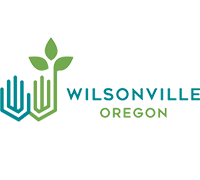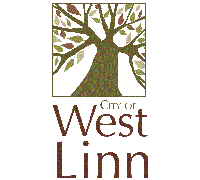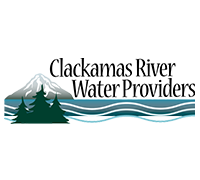The Regional Coalition for Clean Rivers and Streams
Top section
The River Starts Here Student Video Art Contest is currently on hiatus, but check out our YouTube channel playlist to see all of the best student video contest entries from the past!
What's new?
What’s your lawn style?
Want ideas on how to maintain your lawn in a way that helps protect our rivers and streams? There are low, medium, and high-maintenance strategies to care for your lawn and your watershed. Learn more and take action by visiting our What’s Your Lawn Style page.
Our Rivers
Our rivers and streams are a way of life for all people who call the Pacific Northwest home. Originally, Oregon’s waterways were stewarded by more than 60 tribes who spoke more than 18 languages. As Euro-American settlers moved in and created cities and dammed rivers for hydroelectric power, the rivers and wildlife in Oregon have become imperiled.
“This tribe fought to increase the water quality standards for the entire state in order to protect our fisheries and protect our water. That benefit of exercising our treaty for that protection now benefits all Oregonians.”
-Louie Pitt Jr. Director of Governmental Affairs, Confederated Tribes of Warm Springs -from Broken Treaties: An Oral History Tracing Oregon’s Native Population by Cain and Rosman (OPB)
Our Portland-Vancouver Metro area sits at the confluence of two large rivers, the Columbia and the Willamette, which are still migratory routes for endangered wild salmon.
It is not too late to take actions to ensure that wild salmon, lamprey, migrating birds, beavers, otters, amphibians, and many other animals continue to coexist with humans in these waterways. Learn more about how you are connected to these rivers by finding your watershed below.
Connect with Those Working to Protect Rivers and Streams
- View the OWEB Watershed Council map.
- Visit the Native Land Digital Map to learn whose tribal land your community is on.
- Confederated Tribes of Grand Ronde https://www.grandronde.org/
- Confederated Tribes of Warm Springs https://warmsprings-nsn.gov/
- Columbia River Inter-Tribal Fish Commission https://www.critfc.org/
What threatens our rivers?
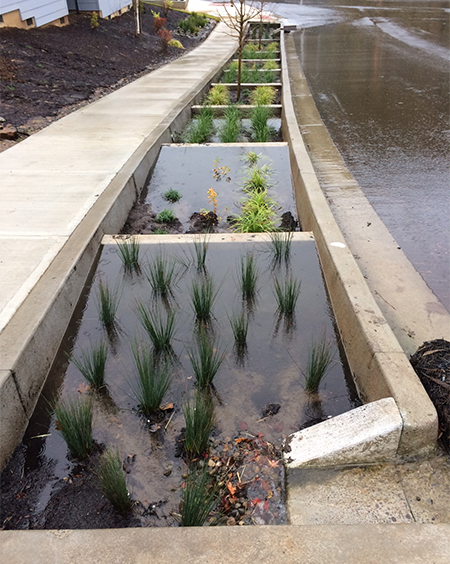
Roadside swales help catch and filter polluted stormwater from our roads.
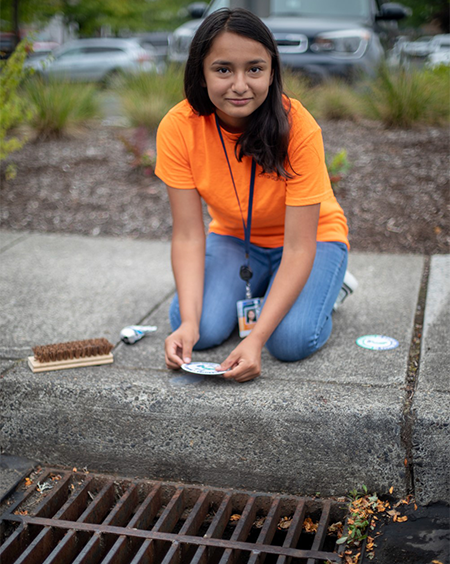
Storm drains like this one drain directly to our rivers and streams. You may notice storm drain markers like these remind people to keep pollutants out of drains. Want to volunteer to mark storm drains near your home? Reach out to your local department that manages stormwater.
It rains a lot in our region. In fact, we receive 42-56 inches of rain in an average year. In a forest, soil and plants would absorb all the rain. But in the city, hard surfaces like parking lots, roads and roofs can’t absorb water. Instead, rain washes over these surfaces and becomes stormwater. Stormwater picks up pollutants such as dirt, oil and bacteria along its journey. By the time this fast-moving stormwater reaches our local rivers and streams, it can cause erosion, flooding and harm to wildlife. We can reduce the harm stormwater does to our rivers and streams by slowing and filtering water with trees, native plants, and permeable surfaces like swales.
In our community, stormwater runoff is now the number one source of water pollution. To keep our rivers and streams healthy, we all have to do our part. Visit the River Starts Here pages to learn more about how you can reduce your impact.
The River Starts in Your Home 
The river starts with you! By taking a few easy steps in your home, you can keep our rivers and streams clean and healthy for generations to come. Learn more about how to support clean water in your community by watching videos and taking actions below.
How You Can Help
Keep harmful chemicals away from kids, pets and waterways by making your own green cleaning products at home. Learn how to make your own non-toxic cleaners.
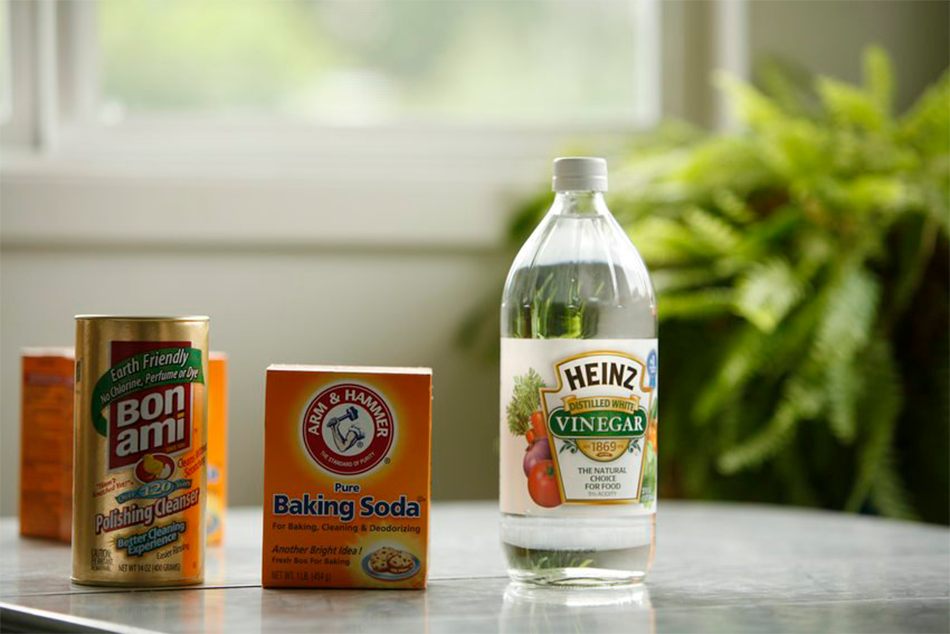
Flushing household items like medications can be harmful to animals in our local rivers and streams. Non-flushable items like “flushable” wipes can also cause big clogs in our sewer system. We need a functioning sewer system to keep your water bills low and toilets working. Learn how to recycle harmful household products.
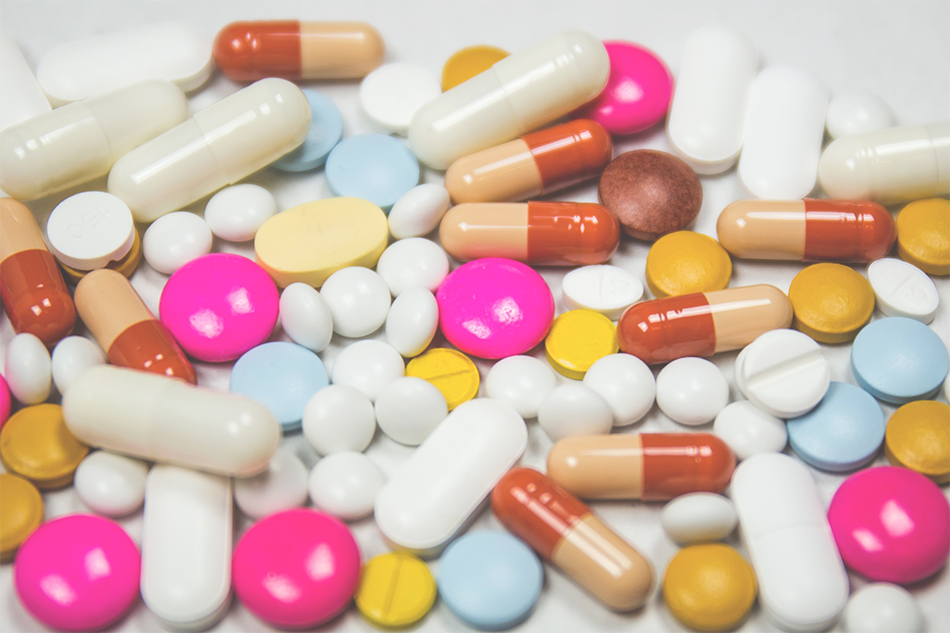
Saving water is good for everyone! Not only does it keep our rivers and wildlife healthy, but it can save you money on your water bill.Learn more about how to conserve water in your home and yard.
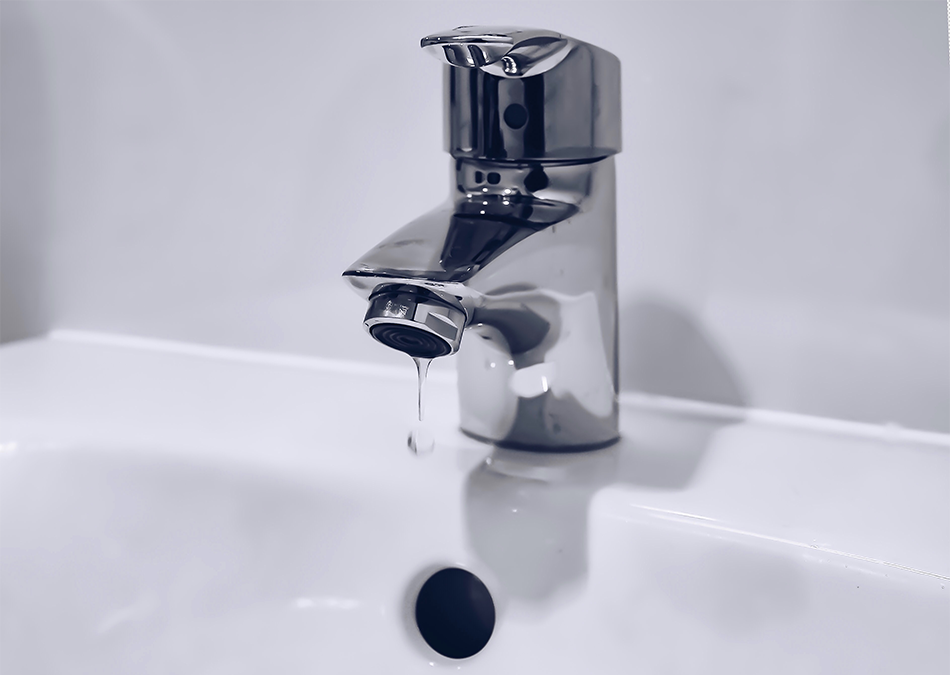
The River Starts in Your Yard 
The river starts with you! By taking a few easy steps in your yard, you can keep our rivers and streams clean and healthy for generations to come. Learn more about how to support clean water in your community by watching videos and taking actions below.
How You Can Help
Pet waste in your backyard ends up polluting rivers and streams. Scoop your pet’s poop in your yard and don’t forget to follow leash and scoop laws in parks.
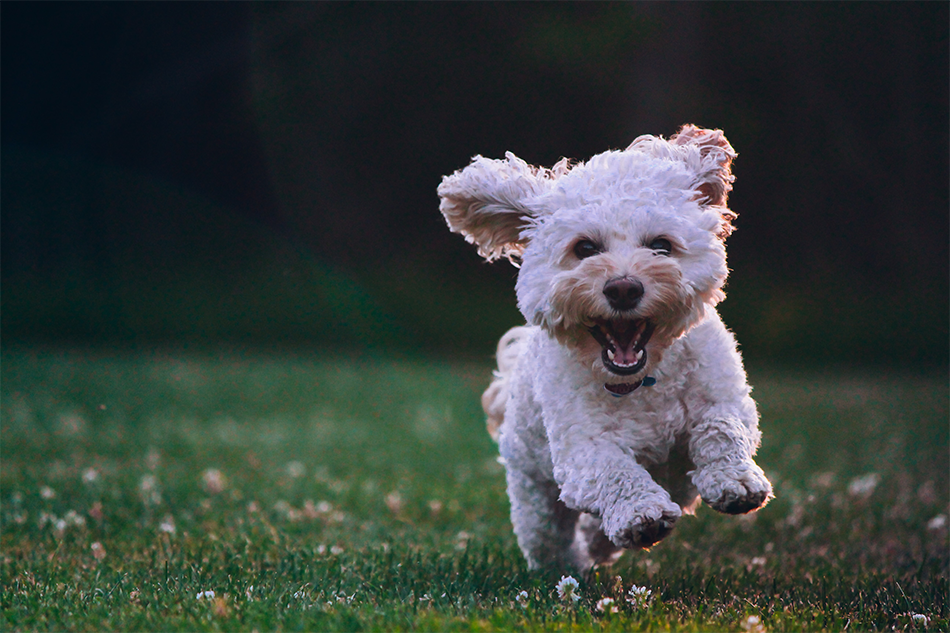
Bacteria from pet waste can send up in our rivers and streams. Scoop your poop to protect our clean water.
Pesticides contain dangerous chemicals that can end up in our rivers and streams and be harmful to children and pets. Sign the healthy lawn and garden pledgeand get your free yard sign.
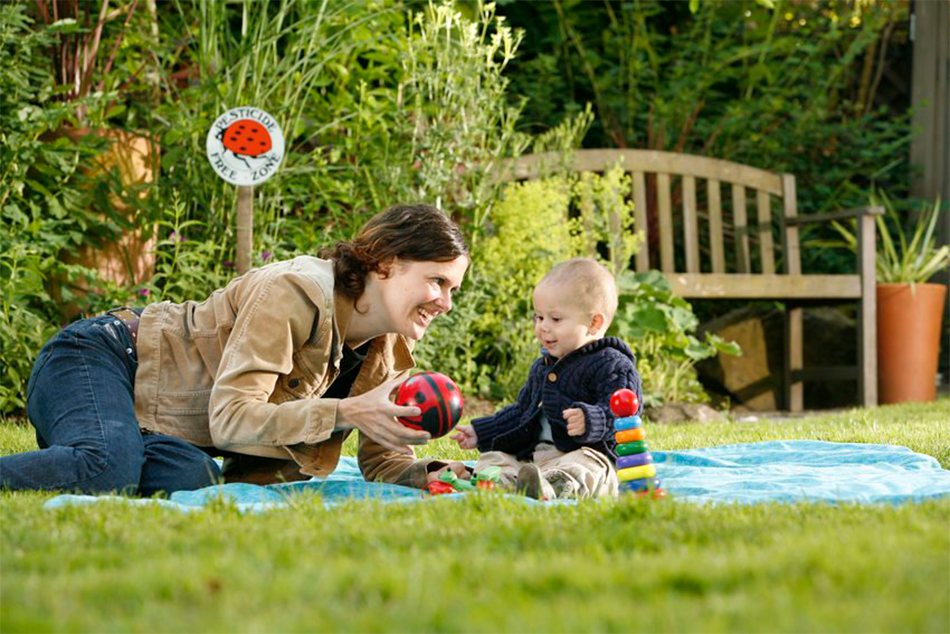
The Healthy Lawn and Garden Pledge keeps your family healthy and safe.
Native plants save water, support native wildlife, are low maintenance and are beautiful. Sign up for the Backyard Habitat Certification Program to start planting natives in your yard. You can also follow many of our partners, like your local Soil and Water Conservation District, to learn about upcoming native plant sales and classes.
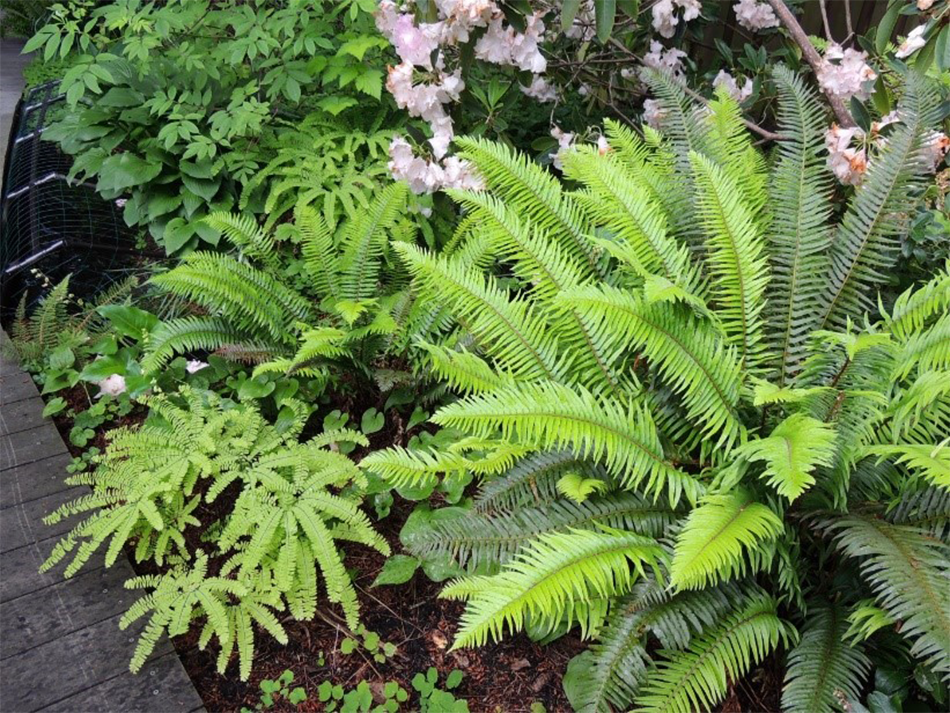
This thriving backyard habitat supports native birds, pollinators and beneficial insects.
Ecoroofs, rain gardens and downspout disconnections all help filter and absorb rain water. Not to mention, they are beautiful! These features can help naturally filter pollutants they may come from roofs, roads or pets. Learn how to build your own rain garden.
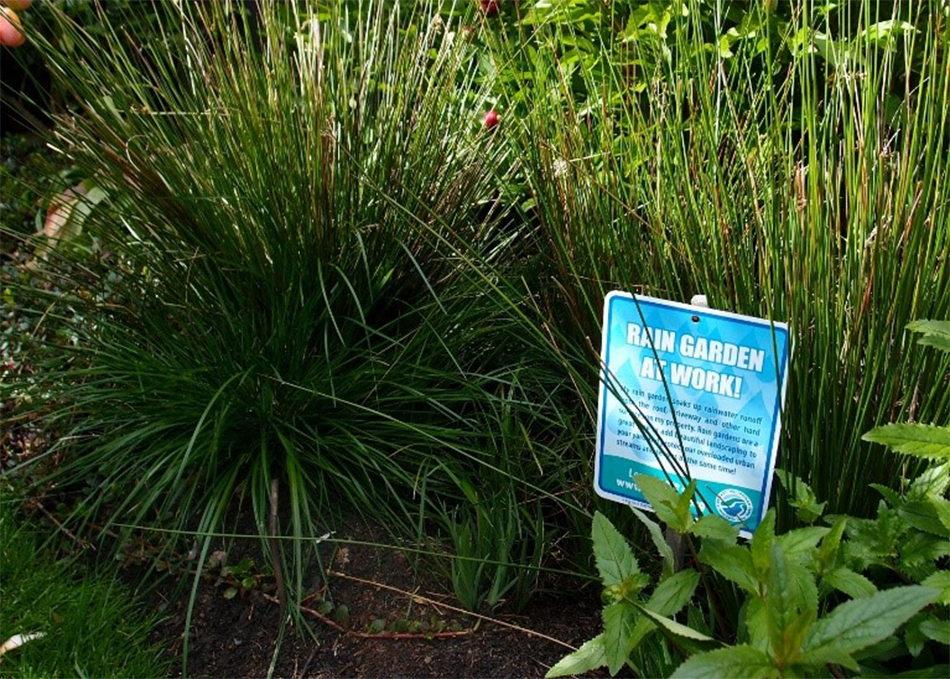
This rain garden helps absorb rain water and runoff.
The safest way to wash your car is at your local car wash. If you choose to wash your car at home, be sure to wash it in an area that absorbs water (such as gravel or grass), capture soapy runoff and prevent any grease or soaps from entering the storm drain. Get more car washing tips or watch an informational video.
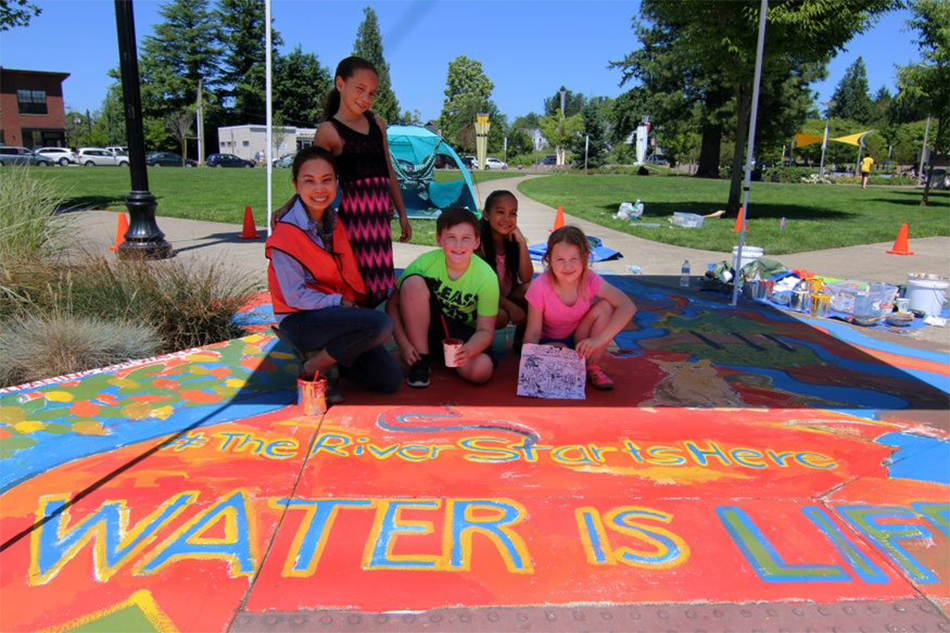
Keep our rivers and streams clean by taking your car to a car wash or being extra careful to capture any soapy or greasy runoff in your yard.
The River Starts in Your Watershed 
The river starts with you! By taking a few easy steps in your watershed, you can keep our rivers and streams clean and healthy for generations to come. Learn more about how to support clean water in your community by watching videos and taking actions below.
How You Can Help
Everyone belongs to a watershed. Everything we do in our home, yard and neighborhood can impact our local rivers. Learn more about your watershed by visiting Our Rivers map.
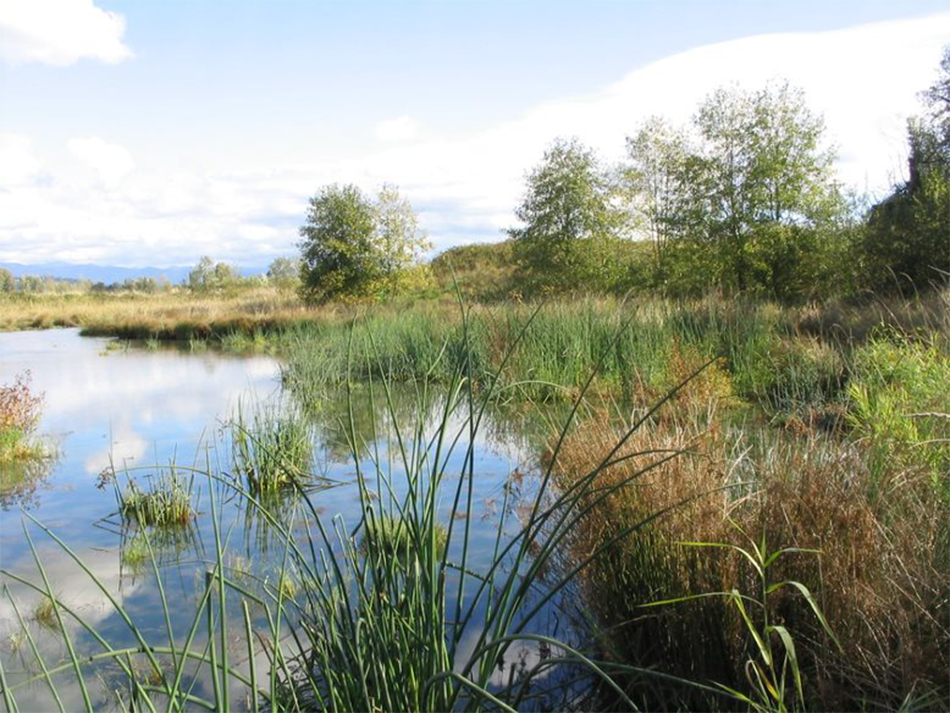
Learn more about what makes your watershed unique.
River clean ups, tree plantings and wildlife surveys are fun for the whole family. Find your local watershed council by visiting Our Rivers map.
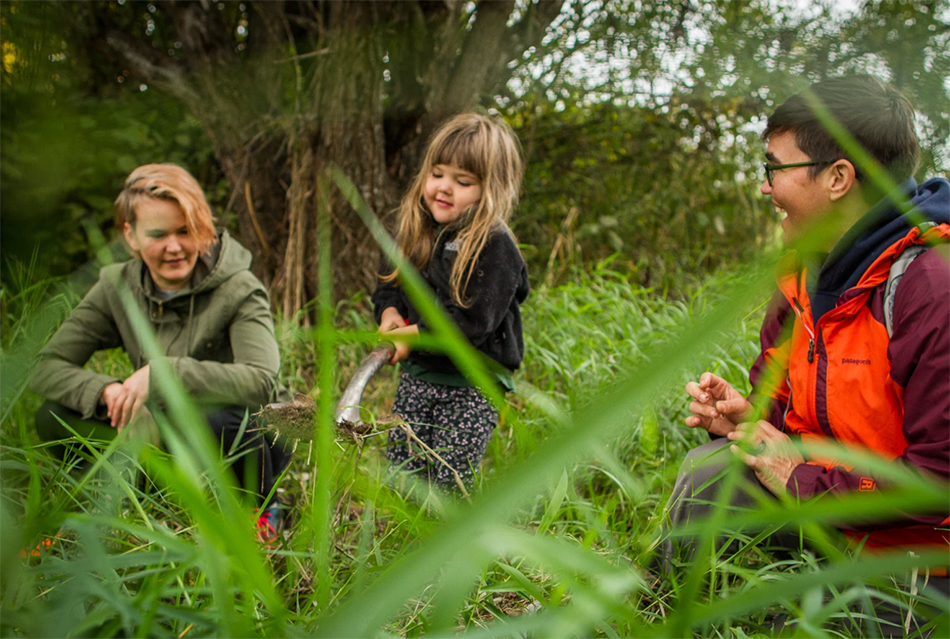
Your local watershed council plants thousands of trees each year along our rivers and streams.
In addition to your local watershed council, we are lucky to have many nonprofits in our neighborhoods committed to clean rivers and streams. Friends of Trees, Willamette Riverkeeper, Columbia Land Trust or your local park group are great organizations to volunteer your time.
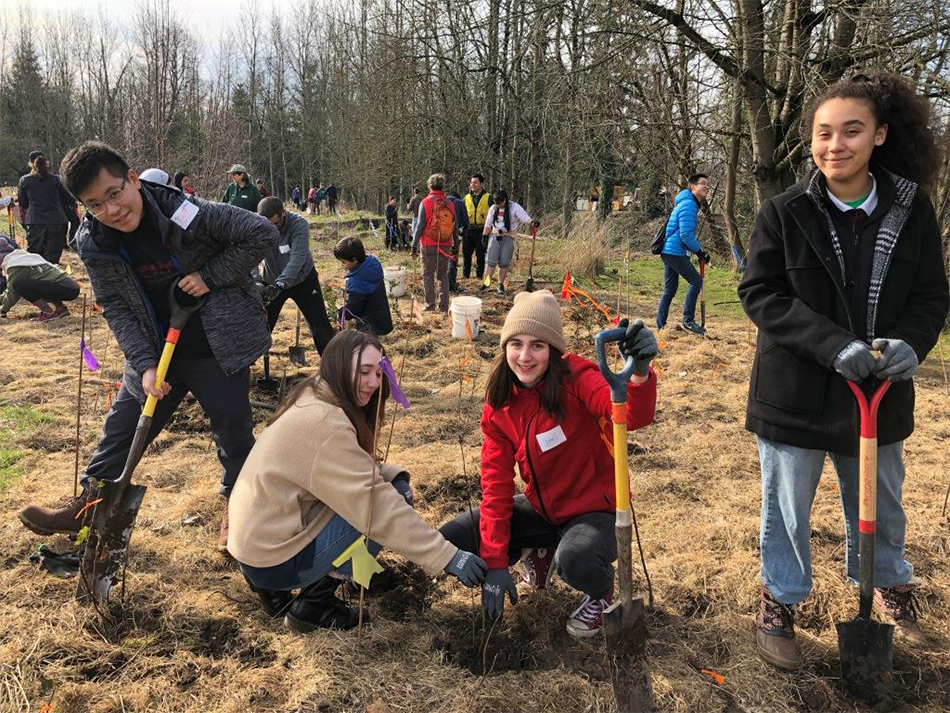
During the spring and fall, many local nonprofits host tree and shrub planting events that are fun for the whole family.
Our local governments work hard to keep local rivers and streams clean. Many of them have volunteer programs for residents to become a green street steward, mark storm drains, plant native plants and more! Want to pitch it? Find your local government in our partners list.
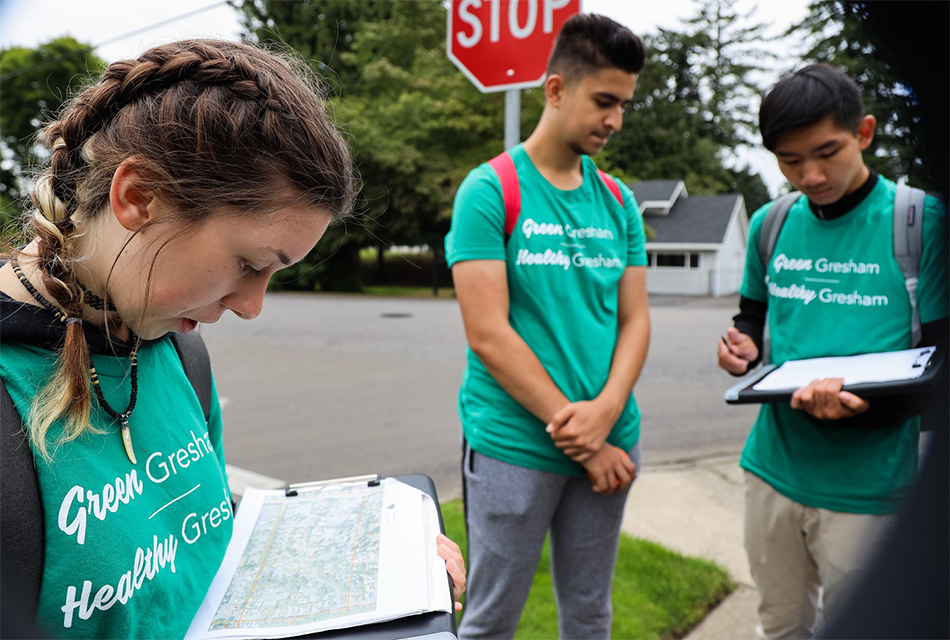
Three Summer Works interns work with the City of Gresham on outreach for local clean river programs.
The River Starts in Your Community 
The river starts with you! By taking a few easy steps in your watershed, you can keep our rivers and streams clean and healthy for generations to come. Learn more about how to support clean water in your community by watching videos and taking actions below.
How You Can Help
Join our partners at science talks, salmon surveys and educational workshops. .
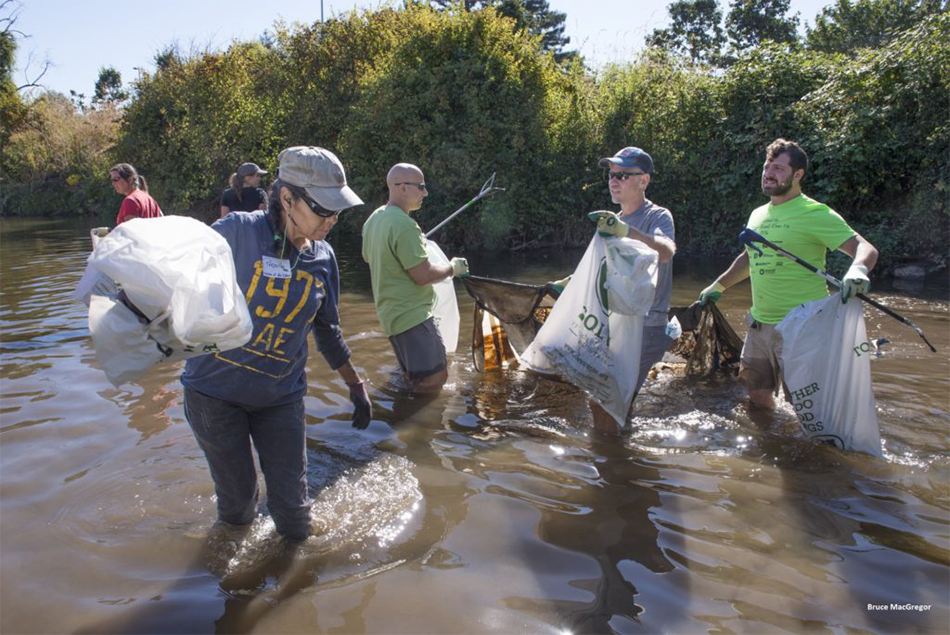
The Annual Johnson Creek Clean Up is a fun and “hands on” way to volunteer your time for clean rivers.
Protect our water and wildlife by following Leave No Trace principles in parks. Learn more about Leave No Trace.
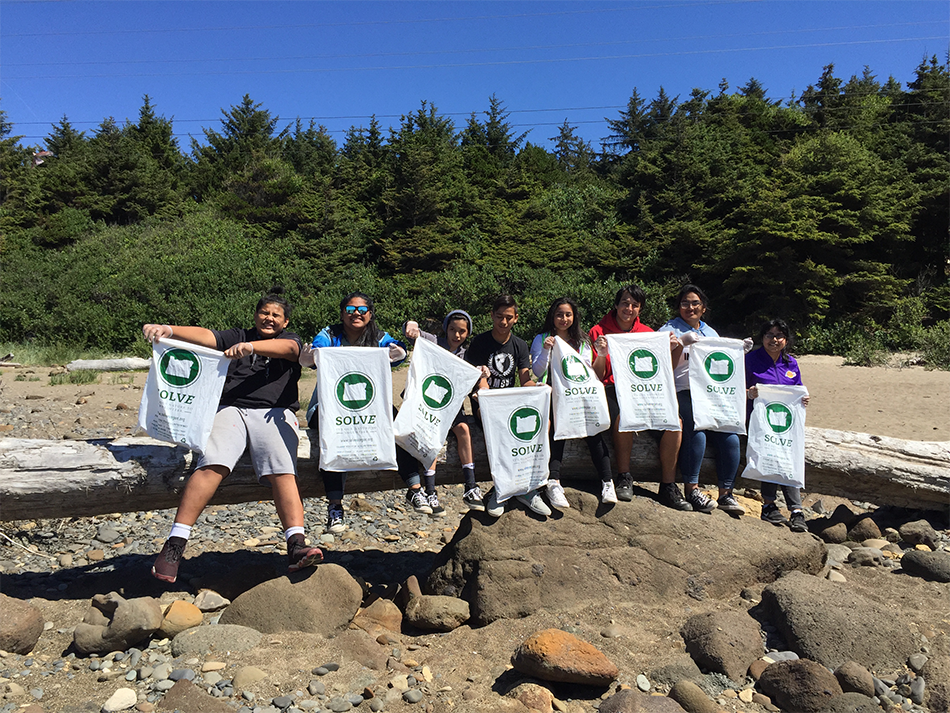
You can practice Leave No Trace principles by attending clean up events like those run by SOLVE Oregon.
Many pollutants in our rivers come from cars. Cars leak, produce exhaust, and spread toxic particles each time you brake. These pollutants wash into roadside gutters and eventually into our rivers and streams. You can protect our rivers by taking active transportation whenever possible. Learn about how to bike and walk in your neighborhood.
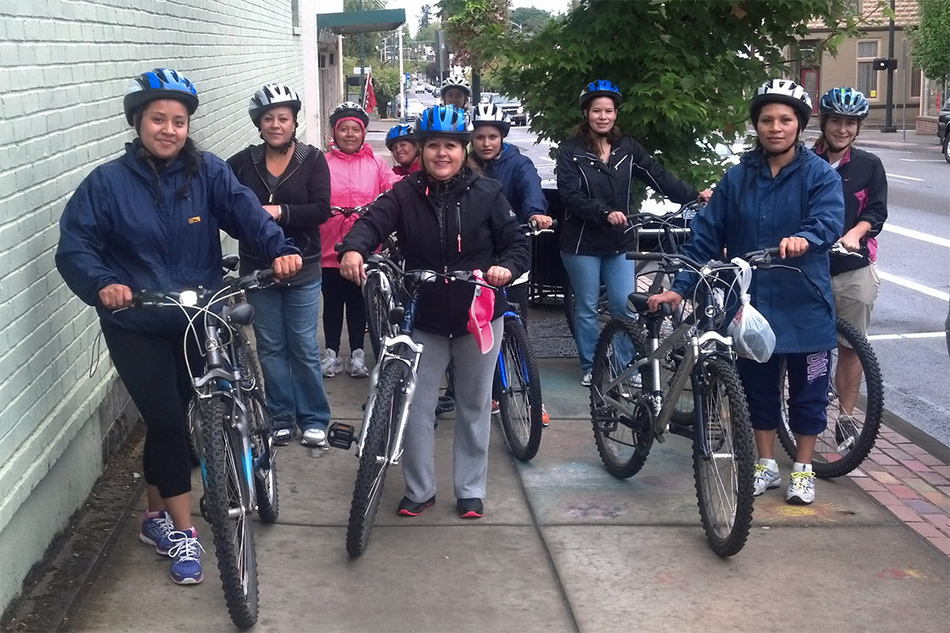
Portlanders of all ages will love bike events like Sunday Parkways.
Looking to hire a landscaper, repair your car or get a car wash? EcoBiz certifies eco-friendly businesses and can help you make the green choice.
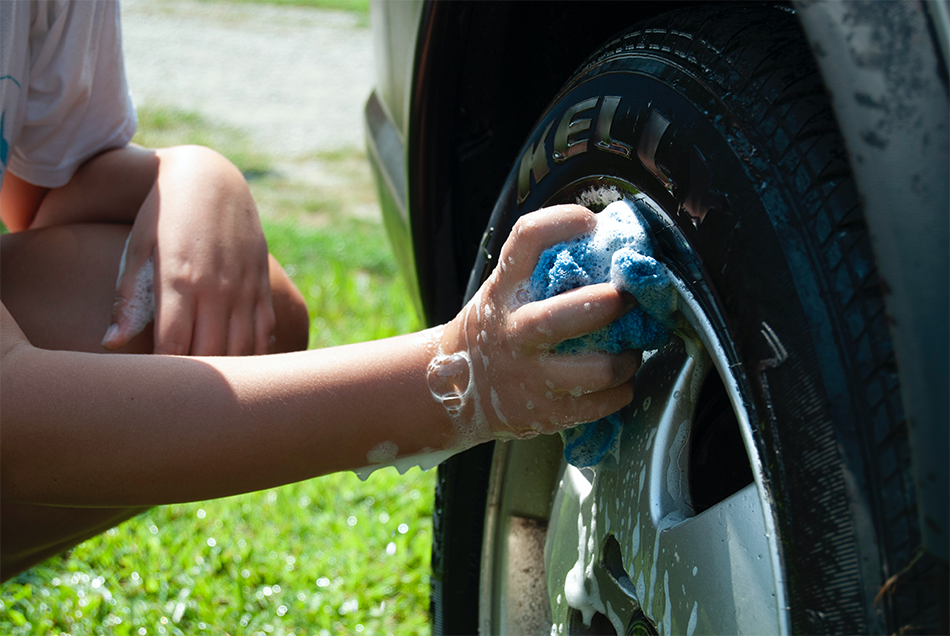
Keep our rivers and streams clean by taking your car to a car wash or being extra careful to capture any soapy or greasy runoff in your yard.
Other resources
Ask an OSU expert
Clackamas River Water Providers
Metro Yard and Garden
KPTV-Clean Water-It’s Our Future
Water Resources Education Center, Vancouver
Oregon Department of Environmental Quality, Water Quality
OSU Monthly Gardening Videos
Regional Water Providers Consortium
Washington Department of Ecology, Watershed Management
Watershed Councils
Clackamas River Basin Council
Columbia Slough Watershed Council
Greater Oregon City Watershed Council
Oswego Lake Watershed Council
Johnson Creek Watershed Council
North Clackamas Urban Watersheds Council
Sandy River Basin Watershed Council
Vancouver Watershed Alliance
Tryon Creek Watershed Council
Tualatin River Watershed Council
Soil and Water Conservation Districts
Clackamas County Soil and Water Conservation District
Clark Conservation District
East Multnomah Soil and Water Conservation District
Tualatin Soil and Water Conservation District
West Multnomah Soil and Water Conservation District
The River Starts Here
We are all connected by water and our daily actions make the difference between whether we have clean or polluted water. And rather than spending millions on cleanups, we can choose to preserve and protect the abundant natural resources in the region. Our daily actions make the difference as to whether threatened and endangered Pacific Northwest salmon will be around for our children.
The Regional Coalition for Clean Rivers and Streams, a partnership of public agencies in the Portland-Vancouver metropolitan area, is dedicated to educating the public about the impact of stormwater runoff pollution on the health of our rivers, streams, and groundwater–all of which are sources of our drinking water. We can do a lot at home to reduce our impact. View the websites of our partners to get involved.

